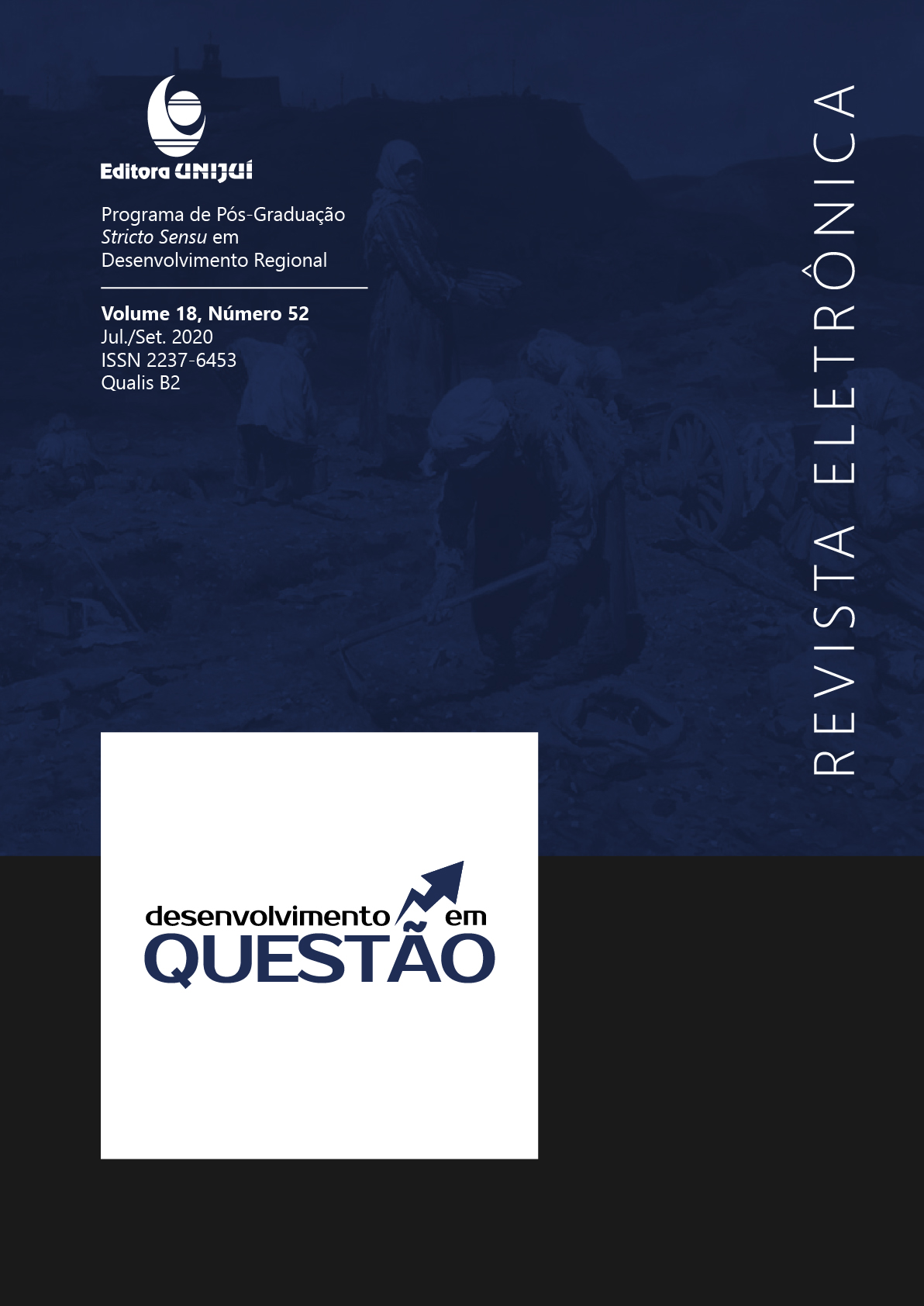COMPARATIVE STUDY OF THE MUNICIPAL HUMAN DEVELOPMENT INDEX AND FIRJAN MUNICIPAL DEVELOPMENT INDEX IN THE METROPOLITAN REGION OF THE PARAÍBA VALLEY - SP
DOI:
https://doi.org/10.21527/2237-6453.2020.52.75-100Keywords:
Indexes. Municipal development. Regional development. Paraiba Valley and North Coast metropolitan region.Abstract
The municipal development indexes support the decision-making of public managers for the implementation of public policies and resource allocation. The use of different methods to compose the indexes can generate different results, which will guide the decision making process. The general objective was to compare the indices - IDH-M and IFDM - of the 39 municipalities and subregions of RMVale and to explore their variables, in order to highlight the municipalities that are most distinguished from the average. In order to reach the proposed objective, SPSS 25 Software was used, based on the analysis of descriptive statistics, represented by scatter plots and tables for the visualization of the research data analyzed through the quantitative methodology. The results obtained identified at least five municipalities in each area of human development that stood out from the mean both upwards and downwards. Likewise, three more vulnerable sub-regions and two subregions with good overall assessment were identified. As a conclusion, the results point out that identifying vulnerable sub-regions and proposing a general solution is fragile, since there are municipalities that are very well evaluated in vulnerable regions, just as there are vulnerable municipalities in well-evaluated sub-regions, which should be considered in regional policy. Results also show that the isolated study of human development areas should be considered to identify vulnerabilities and inequalities in each area.
Downloads
Published
How to Cite
Issue
Section
License
By publishing in Revista Desenvolvimento em Questão, authors agree to the following terms:
All works are published under the Creative Commons Attribution 4.0 International License (CC BY 4.0), which allows:
Sharing — to copy and redistribute the material in any medium or format;
Adaptation — to remix, transform, and build upon the material for any purpose, even commercially.
These permissions are irrevocable, provided that the following terms are respected:
Attribution — authors must be properly credited, a link to the license must be provided, and any changes made must be indicated.
No additional restrictions — no legal or technological measures may be applied that legally restrict others from doing anything the license permits.
Notices:
The license does not apply to elements that are in the public domain or covered by legal exceptions.
The license does not grant all necessary rights for specific uses (e.g., image rights, privacy, or moral rights).
The journal is not responsible for the opinions expressed in the articles, which are the sole responsibility of the authors. The Editor, with the support of the Editorial Board, reserves the right to suggest or request modifications when necessary.
Only original scientific articles presenting research results of interest that have not been previously published or simultaneously submitted to another journal with the same purpose will be accepted.
Mentions of trademarks or specific products are intended solely for identification purposes and do not imply any promotional relationship by the authors or the journal.
License Agreement (for articles published from 2025 onward): Authors retain the copyright to their article and grant Revista Desenvolvimento em Questão the right of first publication.











